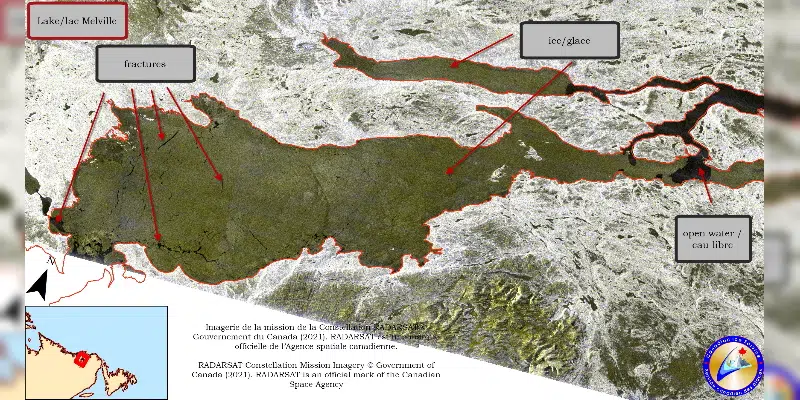The ice has fractured in Lake Melville. That’s according to Environment Canada’s Canadian Ice Services.
In a tweet yesterday, Ice Services said that this year is the second-earliest date on record that the ice has fractured, the earliest coming in 2010 on April 14.
The ice in Lake Melville has fractured. This is almost a month ahead of normal and is the 2nd earliest 🥈 date in our records (2010 record fracture). #seaice #icebreaking🛳️ @ECCCWeatherNL #NLWX #RCMSatellites 🛰️ pic.twitter.com/QI50QXNLQD
— ECCC Canadian Ice Service (@ECCC_CIS) April 27, 2021
Lake Melville is normally fully covered in a single sheet of ice with the average fracture date coming on May 23. This year, widespread fracturing was detected on April 25.
Senior forecaster with the Canadian Ice Service, Jason Ross, says that a single warm year does not indicate climate change. However, looking at the trend over decades, he says there’s a clear decrease in the ice due to warmer temperatures.
Lake Melville is not the only body of water in the country experiencing the early exit of ice. Ross says it is a record low ice year for both the Great Lakes and the Gulf of St. Lawrence.
Normally, there would be around 100 km of ice on the southern Labrador coast at this time of year extending to the island and the straight of Belle Isle. This year, there’s no ice south of Groswater Bay.
























